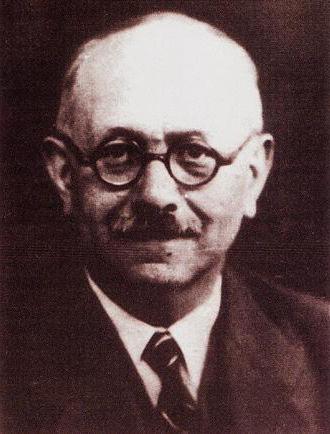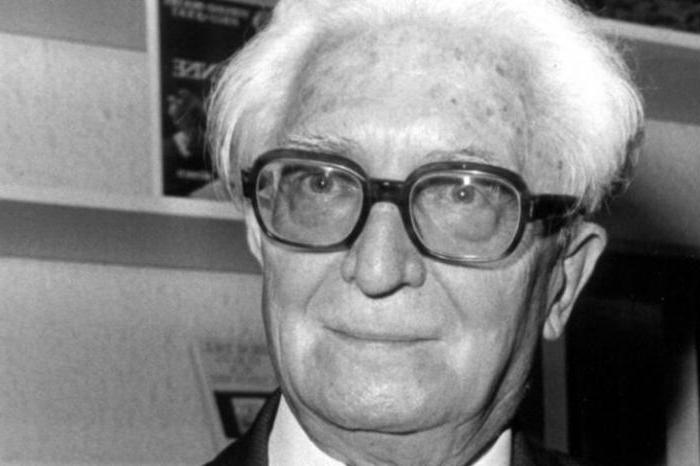The works and works of Fernand Braudel determined the development of not only French, but also world historical science in the 20th century. This scientist made a real revolution in historiography and source studies, focusing on studying not events, as his predecessors and many contemporaries did, but on the features of the development of history as a whole, on the pace and dynamics of the transformation of the goals of socio-economic social structures. As part of his research, he sought to show the story as a whole, not limited to retelling facts and incidents. He had international recognition, was a member of such an organization as the French Academy, and also was a member of other major educational centers.
General characteristics of the direction
The direction of the development of historical science in the 20th century was largely determined by the young school of annals, whose representatives considered the old positivist historiography obsolete and called for paying attention not to facts, but to processes in the economy and society, which, in their opinion, make up the real story, time as external political events and facts - only an external manifestation of their changes. The direction received its name from the magazine of the same name, which was published by M. Blok and L. Fevrom. This new edition became a stronghold of new ideas in French historiography, but at first the school of annals was not widely popular due to the dominance of positivist science.
Some facts of life
The future famous historian at first also adhered to its traditions, old rules and when studying history, he paid attention to the identities of rulers, statesmen, political events. However, very soon he departed from these principles and joined the young stream of annals. But before proceeding to the analysis of his views, it is necessary to dwell on his biography, because all the events in his life had a great influence on his formation as the largest researcher of his time.

The historian’s birthplace is a small French village in Lorigia, which is located on the border with Germany. He was born in 1902 in a simple family: his father was a mathematics teacher, his grandfather a soldier and a peasant. The future historian spent his childhood in the village, observing the life of ordinary workers had a great influence on the worldview, largely determining his interest in the history of life. According to the author’s recollections, this place of birth was the first school, because he took from it an understanding of the value and importance of the everyday existence of ordinary people.

In 1909, he entered elementary school in the Paris suburbs, and then in the capital’s lyceum. According to the historian, study was very easy for him: he had a good memory, he was fond of reading, art, history, and thanks to his father’s preparation, he also coped with mathematical disciplines. His parent wanted him to receive a technical degree, but the historian entered the liberal arts faculty at the Sorbonne. Fernana Braudel, like many young students of that time, was interested in the topic of revolution, and in an effort to get a degree, he chose a topic for a dissertation to start it in a town that was near his native village, but these plans were not destined to come true.
Work abroad
The scientist went to Algeria, where he taught from 1923 to 1932. He was a brilliant lecturer and even then proved to be a brilliant teacher. According to his recollections, these years had a great influence on him: he became so interested in the Mediterranean world that he decided to devote his dissertation to him. During these years, he not only teaches, but also very fruitfully engages in scientific activities, working with archival documents. He was very efficient and in a few years accumulated a huge amount of material sufficient to write a scientific study. The publication of his first article (1928) dates back to this time.
Change in views
The formation of Fernand Braudel's worldview was greatly influenced by his meeting with L. Fevre in 1932, when both returned home together. This acquaintance largely determined the features of his future scientific approaches. He became not only a supporter of the ideas of the school of annals, but also his close friend. The scientist collaborated with his famous magazine, which subsequently affected his work. The fact is that at first he chose the policy of King Philip II in the Mediterranean as the topic for his dissertation, which was in line with the traditions of positivist historiography, but later he moved away from the personality of this ruler and decided to make the history of the environment the main object of his research, studying general trends in development under close attention to economics, social structure, economics. So the French historian became the founder of a new direction in historiography - geohistory, which suggested combining the study of the phenomena of the past inextricably linked with the nature of the climate, the features of the area.
Work in Brazil and during the war
From 1935 to 1937, the scientist taught at a Brazilian university. This new work, he said, also had a huge impact on him, primarily in the cultural sense. Being extremely susceptible by nature, he watched with keen interest the life in one place of several nationalities, which subsequently determined Fernand Braudel's interest in the problem of the coexistence of different civilizations. Returning to his homeland, he, under the guidance of his friend, decided to write a dissertation on the Mediterranean, but in the mainstream of a new direction, however, the outbreak of war and the occupation of the country changed these plans.
The historian at first fought, but not for long, since he was captured along with the remnants of his detachment and remained in captivity until 1945. Nevertheless, he found the strength to continue the work. The scientist worked from memory, restoring his archival records and the achievements of previous years. In addition, the researcher managed to establish contact with Fevre, who, after the execution of the Bloc for participating in the Resistance movement, remained the only head of the annals direction. Braudel was in prison in the city of Mainz, where there was a university, and the conditions of detention of prisoners of war were not very severe. Here he had the opportunity to continue his work, which was successfully defended after the end of the war, in 1947.
Post-war decades
After the publication of his famous dissertation “The Mediterranean Sea and the Mediterranean World in the Age of Philip II,” the author became a recognized representative of the new school. At this time, he was actively engaged in teaching, and established himself not only as a talented scientist, but also as an excellent organizer. In 1947, he and his friends founded the 6th section of the Practical School of Higher Studies, which became the mainstay of new research developments. After the death of February, he became its president and held this position until 1973. He also became the editor of his journal and began teaching at the College de France, where he headed the department of modern civilization.
Departure from public activities
However, after the events of 1968, serious changes occurred in his fate, as well as in the fate of the country. The fact is that this year mass student movements began, which acquired a fairly wide scope. Braudel, returning to his homeland, tried to enter into negotiations with the participants, but this time found that his words no longer produce the desired action on them, as in previous years. Moreover, it turned out that he himself was considered a representative of obsolete science. After these events, he decides to leave most of his posts and devote himself exclusively to scientific activity.
New job
From 1967 to 1979, he worked hard on his next major work, “Material Civilization, Economics and Capitalism”. He set himself the seemingly impossible task: to study the history of economics from the 15th to the 18th century. In this fundamental work, he, on the basis of enormous historical material, showed the mechanisms of development of the national economy, trade, and the material conditions of the existence of people. He was also interested in the intermediary role of merchants, traders, banks.
According to the scientist, the economic, social factors that developed in previous decades, became the basis for politics, the events of which he did not attach much importance, considering them superficial and uninteresting for the scientist, for which he was often criticized. He was also accused of trying to write a global story and cover all aspects of life, which is essentially impossible. Nevertheless, the new work of the researcher changed the direction of the development of historiography.
Views and methodological approaches
The history of everyday life has become the main object of his research. But of particular interest is his concept of historical time, which he divided into long (the main, which covers the existence of civilizations), short (events of individual periods, which cover the lives of individuals) and medium, cyclical (which includes temporary recessions and ups and downs in different areas of society ) Before his death, he actively worked on a work devoted to the history of France, one of the sections of which is called “People and Things”, in which he carried out a thorough analysis of the life of the people, their way of life and developmental features. But he died in 1985, not completing his work until the end.
Value
The role of this scientist in historiography is difficult to overestimate. He made a real revolution in science, moving behind the representatives of the school of annals from the history of facts to the study of social and economic processes. He brought up a galaxy of scientists, including such famous names as Duby, Le Goff and many others. His works became a milestone in historical and science and in many respects determined the direction of its development in the 20th century.